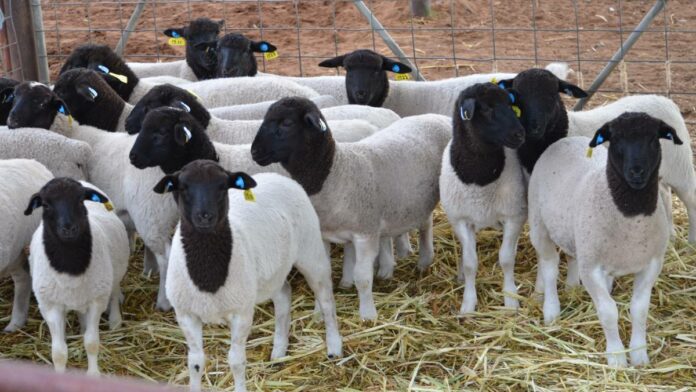Dorper sheep rearing is undoubtedly one of the most lucrative ventures in agribusiness. The breed has recently become popular among farmers owing to its superior characteristics.
Unlike the indigenous breeds, a Dorper is resistant to diseases and can survive in various harsh environmental conditions.
While many farmers in Kenya rear the breed for meat purposes, breeding Dorper can be very lucrative given the surging demand for the animal. Dorper sheep are good grazers and can graze at a very early age.
They, at the same time, grow faster, reaching a high weaning weight with ease. Usually, they weigh around 36kg by the time they reach four months of age. At this age, they are usually ready for market and can go for not less than 10,000 Kenyan shillings.
To ensure faster growth, farmers need to:
- Feed the sheep with a balanced diet
Pasture is the best feed for Dorper sheep as it has nutrients good for growth. You can supplement Dorper sheep with grass hay, especially during drought seasons, since they have the required nutrients for sheep.
- Deworm, vaccinate and treat your sheep against internal and external parasites.
Parasites and diseases decrease growth rates and, at high levels, can even cause death. As such, farmers need to treat the sheep against internal and external parasites regularly. Farmers can also prevent pests and diseases through grazing rotations.
- Adequate shelter
The sheep should be provided with a spacious and well-ventilated pen to ensure comfort. When the sheep is comfortable, it means zero stress hence faster growth. A Dorper sheep’s pen should also be well-covered to protect them against harsh weather conditions.
Dorper Sheep Breeding
Dorper sheep, especially males, reach maturity quickly and are usually ready to breed by about five months. A Dorper ewe can be bred any time of year. Depending on the time, the breeding cycle can commence as early as six to eight months.
The breeding cycle for a Dorper sheep lasts between 16 and 59 hours. It takes a Dorper ewe about five months before it starts giving months to lamb. The gestation period of a Dorper ewe is estimated at 147 days, while the lambing interval is about eight months.
A ewe can produce over two lambs on an annual basis and registers a 78 percent fertility rate and a 10 percent twining rate.
Most breeders prefer raising rams which they sell out to farmers for breeding, instead of allowing them to bring ewes into their farms. This is to avoid the spread of diseases.
Read: Everything you want to know about successful pig rearing
How Profitable is Dorper Sheep Rearing?
According to some farmers, selling Dorper sheep for breeding is more profitable than selling them for meat. A full pure Dorper ram, ready to serve, costs about Sh45,000 while fully grown ewe costs around sh 25,000.
At the same time, a cross with an indigenous breed sells at Sh15,000-20,000 for a ram and Sh10,000 for a ewe. A four-year month lamb weighing around 36kg goes for not less than 10,000 Kenya shillings.








